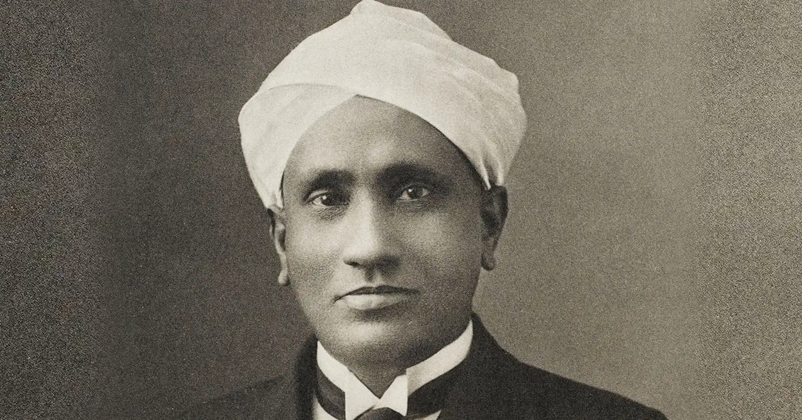Remembering great Physicist and Nobel Laureate Sir CV Raman on his birth anniversary
Total Views |

Today marks the birth anniversary of Sir Chandra Shekhar Venkata Raman, popularly known as CV Raman. He was born to a Tamil family on November 7, 1888, in Tiruchirappalli, Tamil Nadu and died on November 21, 1970 in Bangalore. He is one of the greatest legends in India and the first person to receive the Nobel Prize in physics. He received the Nobel Prize for the scattering of light and the Raman effect in the year 1930, becoming the first asian and first non-white person to receive the Nobel Prize in any scientific field.
Every year, National Science Day is observed on February 28th to commemorate the discovery of the Raman Effect by Sir C.V. Raman. This day celebrates his groundbreaking work in the field of physics, specifically his discovery of the change in the wavelength of light when it scatters in a material. The Raman Effect has had a profound impact on various scientific and technological applications, making this day an occasion to honor his contributions to the field of science. It's an opportunity to remember and appreciate the work of one of India's most renowned scientists.
He topped his undergraduate degree examination with Physics honours at the age of 16 at the University of Madras and later got his MSc degree from the same university with the highest distinction
and worked as an accountant in the finance department of the Indian government. In 1917, he joined the University of Calcutta as a professor of Physics.
After 15 years at Calcutta, in 1932, Raman joined the Indian Institute of Science in Bangalore as the head of the department of Physics. He became the director of Raman Research Institute in Bangalore in 1948 and remained in the position till his death on November 21, 1970.
Sir C.V. Raman received numerous awards and honors during his illustrious career in recognition of his outstanding contributions to science and his groundbreaking discoveries. Some of the most notable awards and honors he received include:
1. Nobel Prize in Physics (1930): C.V. Raman was awarded the Nobel Prize in Physics for his discovery of the Raman Effect, which revolutionised our understanding of the interaction between light and matter.
2. Bharat Ratna (1954): This is India's highest civilian award, and Raman was honoured with it for his exceptional contributions to science.
3. Hughes Medal (1930): He received the Hughes Medal from the Royal Society of London for his work on the Raman Effect.
4. Franklin Medal (1941): The Franklin Institute in Philadelphia awarded Raman the Franklin Medal for his contributions to science.
5. Fellow of the Royal Society (1924): He was elected as a Fellow of the Royal Society, a prestigious scientific honour in the United Kingdom.
6. Lenin Peace (1958): Raman was awarded the International Lenin Prize for Strengthening Peace Among Peoples, an accolade presented by the Soviet Union for his contributions to science and peace.
7. Copley Medal (1945): He was awarded the Copley Medal by the Royal Society of London, one of the oldest and most prestigious scientific medals in the world.
8. Knighthood (1929): Raman was knighted by the British Crown in recognition of his scientific achievements.
These awards and honours reflect the international recognition and acclaim that C.V. Raman received for his pioneering work in the field of physics and his dedication to advancing scientific knowledge. His legacy continues to inspire scientists and researchers worldwide.

